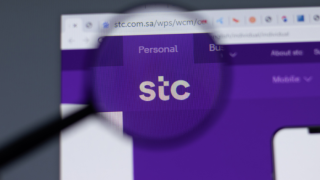In 2010, the 30% Club campaign was founded by Baroness Helena Morrissey and has since evolved into a global mission with chapters in multiple countries and regions around the world.
The 30% Club works to bring about real transformation by encouraging and supporting Chairs and CEOs to appoint more women to the Board and senior management level.
It provides information for businesses trying to improve their diversity at all levels and harnesses public media support by leveraging the power of social media.
The concept came to be after a “disappointing” experience Morrissey had after giving birth to her first child. She was passed for a promotion after returning from maternity leave.
Morrissey told emPOWERED: “I asked my boss which areas I needed to work on, and he said, ‘Your performance is great, but there is some doubt over your commitment with a baby’”.
“I had done nothing differently.”
After that experience, the thought was born in Morrissey’s mind.
“One day, if I have the power, I will try to do something to help to ensure that does not happen to other women,” she says.
It was then sometime later, when Morrissey held the position of CEO at a financial firm, that she set up a dedicated network for women.
“The events were very enjoyable and it’s great having women talk to women, but if you want to get promoted, I realised we needed to involve men,” she says.
This prompted Morrissey to change the approach.
In 2010, Deutsche Telekom introduced a voluntary internal woman’s quota: to fill 30% of management positions with women.
The prerequisite for this was that the company’s corporate culture would consistently demonstrate and enable equality.
“The bit that I loved about what [Rene Obermann, CEO at the time] was doing was when he said he wasn’t doing it to be nice to women, he was doing it to improve business,” Morrissey says.
And that is where a chance arose. “We just had a financial crisis, no one could argue things were going well, particularly on bank boards and that was the genesis of the idea of the 30% Club.”
Allyship
What was encouraging for Morrisey to see was the male involvement that helped shift this from being a women’s issue to a business issue.
“And the men were very competitive – I had underestimated that,” she laughs. “And so, they wanted the best women, the most women and the fastest to 30%.”
Things began to change after the inception of the 30% Club, and Morrissey credits “great media” support as an important element.
“It gave me confidence that bigger change on more issues that affect women was possible – but I don’t think it was just a one-off."
Morrissey now serves as Chair of The Diversity Project – a cross-country company initiative that champions a truly diverse and inclusive UK and investment savings industry with the right talent to deliver the best financial outcomes for clients.
The project's motto indicates that diversity, equity and inclusion are not only a social obligation, it is a business imperative in our industry, and Morrissey notes that allyship is one of the group’s key themes for the year.
“What we learned from our discussion at the start of the year is that a lot of people think to be an ally, you need to set aside a certain number of hours in the week or enter some sort of formal programme.
“I don’t think being a great ally is like that. It’s about watching out for the women who are working with you, it is about being more aware and fighting their corner if necessary.”
Morrissey believes allyship comes in many forms and it could even be something such as having a short chat with a colleague to ask if they require assistance.
She acknowledges that sometimes men can feel they may come across as patronising or condescending, or their intentions may be misconstrued.
“You can be very sensible about it and just listen, and perhaps offer them advice as a sounding board, a friend or a colleague.
“I think it’s less dramatic than people might think. The best allies in my life, both male and female, have been ones that have quite subtly been there and if I’ve needed to pick up the phone or if they’ve spotted an issue, they will reach out."
Combatting imposter syndrome
In a piece for The Telegraph, published earlier this year, Morrissey wrote she doesn’t “know anyone in a senior role who – if they were being totally honest – would deny having ever experienced imposter syndrome”.
“It was tricky being a woman in a man’s world and I felt like I didn’t belong, but that’s not quite the same as feeling like a fraud or feeling overpromoted – almost like you don’t deserve the role,” Morrissey says.
This is something she felt after being appointed chief executive of the money-management group Newton at the age of 35.
By that time, she had already had five of her nine children, and the youngest among them were aged three, two and one.
“I didn’t have any proper management experience or training for that, so you could argue I was legitimately an imposter,” she laughs. “But I was appointed for a reason.”
This is something Morrissey realised in due course, given her colleagues had recommended her for the role, noting that her style of leadership would serve the company well.
While imposter syndrome is something that everyone experiences, Morrissey believes that women are generally more open to talking about it than men.
“Let’s acknowledge and accept that’s how we feel and then work out mechanisms to cope,” she says.
While the position Morrissey found herself in was well outside of her comfort zone, she now acknowledges that this was necessary in order to fulfil her career potential.
She advises individuals in similar situations to seek out allies, mentors, or friends to find support. “Recognise that this is the territory of just about everybody who’s been successful or achieves anything.”






